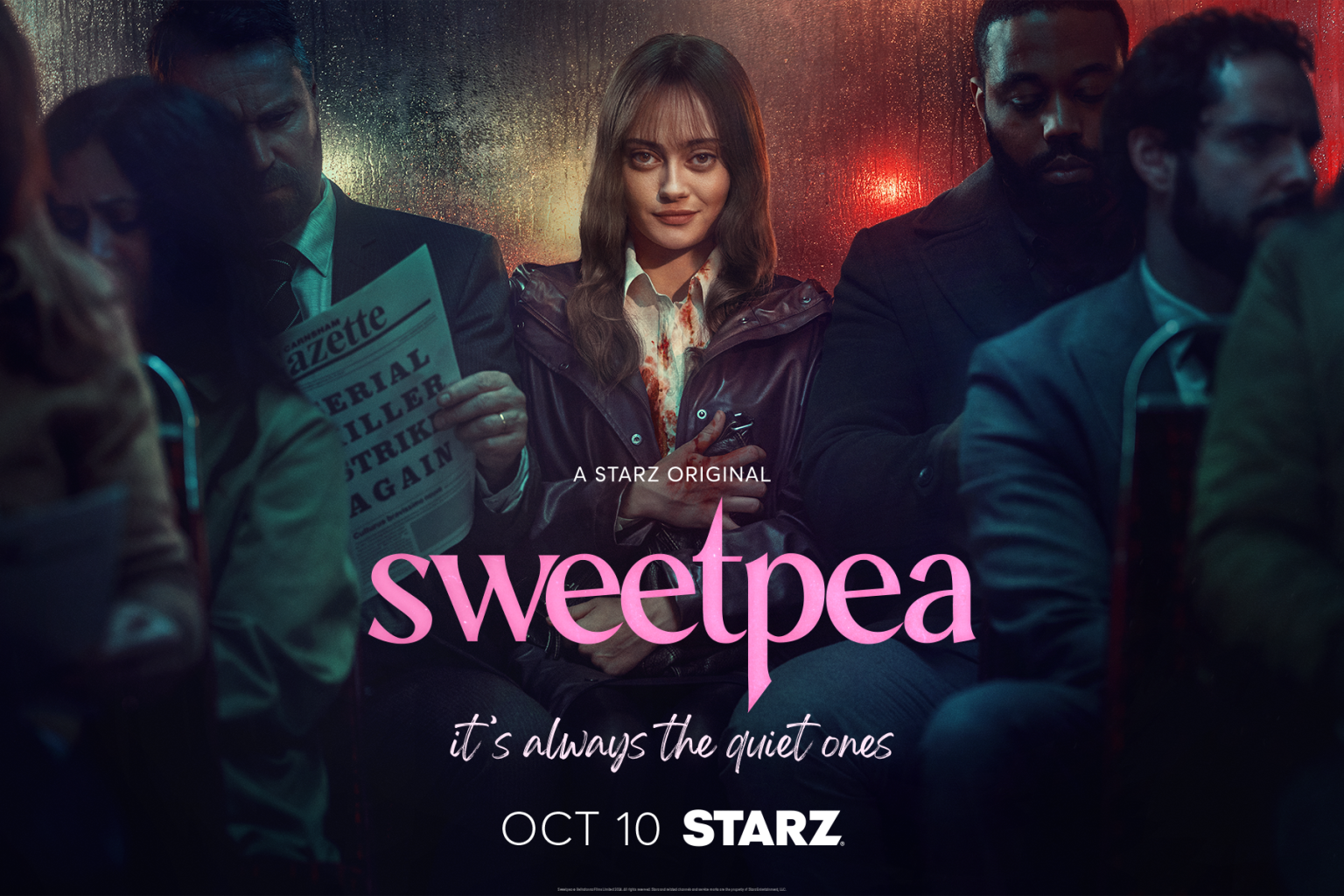When we are first introduced to “Sweetpea’s” Rhiannon Lewis (Ella Purnell), she goes over a list of people she would like to kill. From the supermarket worker who ignores her to the boss who sees her as nothing but an assistant, the list is extensive, and obviously thought out. Slight in frame and timid in personality, Rhiannon disappears into the background of her own life and everyone else’s. Their glances pass over her like they hadn’t considered her existence at all, and she passes through her days at work barely speaking to anyone. This isolation is what leads to her making a kill list, and ultimately, leads her further down a path of destruction.
After a family death, Rhiannon’s perfectly unassuming resolve begins to crumble. Left with only a despondent sister in her corner, she realizes how truly alone she is. It all comes to a head when her childhood bully Julia (Nicôle Lecky)–whose abuse was so severe Rhiannon developed trichotillomania–attends the funeral, forcing Rhiannon to make a vow that she will never become someone’s victim again. But life has other plans. As all aspects of her personal life begin to crumble, she is incapable of holding her emotions in for any longer. After a week from hell, she loses her cool and becomes a version of herself even she can’t comprehend.
From here, Rhiannon begins to struggle with these unexpected–and morally wrong–desires. Incapable of speaking up for herself, the only way she knows how to gain agency in her life is by taking other people’s agency away. She gains more confidence by shedding what makes everyone else human, trading in her reticence for a violence that she cannot control, even if she wanted to. As the violence continues and deceit becomes a part of her daily life, Rhiannon doesn’t feel bad for what she’s done, she’s simply afraid of getting caught.
At first glance, “Sweetpea” feels like a show simply inspired by genre tropes, from its premise to its themes surrounding isolation and womanhood, but there’s an edge here that most thrillers have been devoid of in the last few years. Though it begins like a more cyclical version of “Fleabag,” the series slowly unfurls into an updated version of “The End of the F***ing World.” It’s this switch, which becomes apparent in episode four, that makes this show one of the best of its kind. From here, “Sweetpea”’s comedic edge is balanced well with an introspective look into how isolation in the modern age is affecting young women.
The way in which loneliness grips onto Rhiannon is harnessed by a career best performance from Ella Purnell. From “Yellowjackets” to “Fallout,” we’ve seen her sketch the shape of the All-American girl. Here, writer Ella Jones gives Purnell more depth to work with than any of her previous characters, allowing the actress to chew on material that is more than worthy of her. Rhiannon feels as if she truly exists, her slight disposition not made for the world of fickle relationships ours has turned into. She becomes more and more cyclical, like by striking the first victim she has released a version of herself that was buried deep within, and Purnell juggles this with an ease unknown to most of her peers.
It helps that Rhiannon is forced to confront and befriend different characters throughout the series, all who aid in her perpetual hatred for the world she lives in. When her childhood bully Julia comes back to town, Rhiannon cannot cope. But, as the season goes on, she begins to realize that maybe the two of them aren’t so different. Purnell and Lecky have a dynamic chemistry that, as “Sweetpea” continues, becomes one of the most interesting female dynamics on screen this year. The two dance around each other, often trading places in the cat-and-mouse game they’ve inhabited since childhood. Finally, there’s an intensifying connection, one that could ultimately make or break not only the relationship between the two women, but the already volatile lives they’ve carved out for themselves.
“Sweetpea” begins as a story about a woman who, in her desperation to be seen and heard, harnesses a deep-rooted brutality to gain some sense of agency. While the setup could make for another run-of-the-mill thriller, Jones breaks and bends these tropes as a writer to instead give us an in-depth look into the psyche of a woman crumbling under the weight of modern life. With 8 million people in the world, Rhiannon wishes just one would look her way, and if she has to commit a crime for this to happen, then so be it. “Sweetpea” feels fresh from beginning to end, offering us a gripping story right down to the final episode’s shocking cliffhanger.
All six episodes screened for review. Premieres on Starz on October 10th.

